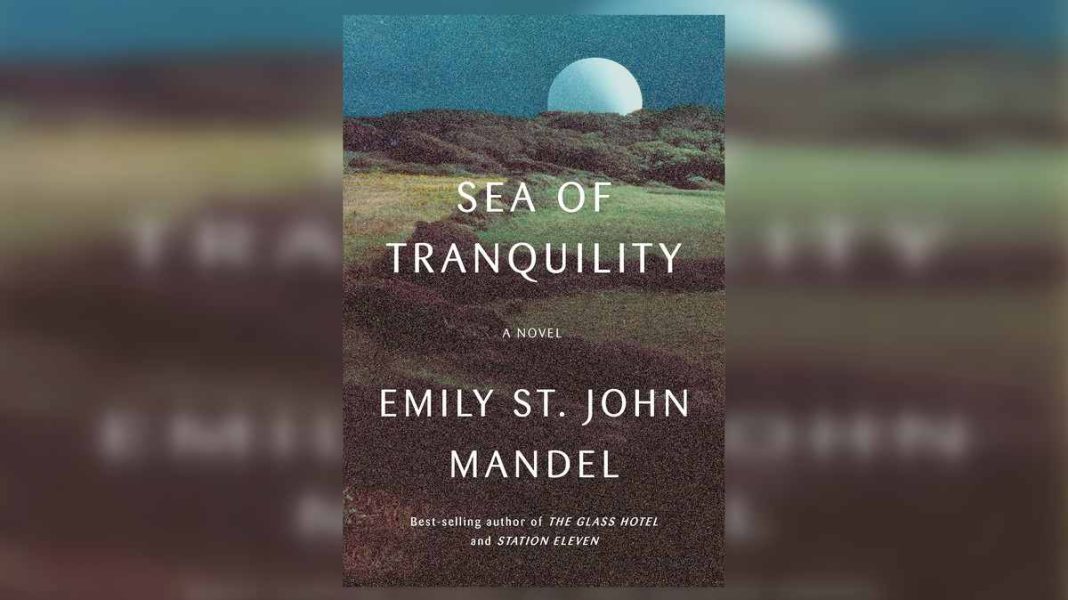One does not usually expect a sci-fi novel to delve deep into the psyches of its characters. But then, Emily St. John Mandel’s “Sea of Tranquility” is a great deal more than standard-issue science fiction. Her newest work recently won a Goodreads Choice Award, continuing her trail of fame after Station Eleven and The Glass Hotel. The beautiful paperback travels back and forth in time to discuss a critical question for humanity: what is reality? Do we live in a simulation, and does it matter anyhow? The 255-page novel introduces us to several characters as it trundles through time. In a few quick strokes per chapter, these people start coming to life.
Edwin St. John St. Andrew
A young English aristocrat disillusioned with life sets sail on the stormy waters of the Atlantic in 1912. Edwin disagrees with his familial political views, believing that colonial England was presumptuous in assuming ownership over far-flung colonies. One of three brothers, he is not set to inherit the family estate but does not know what to do with his life. Edwin encounters different people on his journeys—Reginald, a viscount’s son; Thomas, his elder brother’s schoolmate—but he relishes stillness. The vast open spaces and the harsh world make him feel unsettled.
When Edwin encounters a baffling glitch near a maple tree in the forest, his confusion only grows. What did he even hear: a violin, a train station, an unidentifiable whoosh? His daze has barely lifted when he gets sucked into war and returns to his ancestral home wounded and unhinged. Edwin cared for nothing more than appreciating the beauty around him, but this was a lofty aspiration. Our bewilderment at the absurdity in the world often gets interpreted as insanity. Edwin’s life trajectory is a testament to this.
Mirella Kessler
Mirella has experienced multiple losses. Her husband, Faisal, killed himself after losing money in a Ponzi scheme run by his friend, Jonathan. Her friend, Vincent, the fraudster’s wife, mysteriously jumped off a ship. She is desperate for answers when she meets Paul, Vincent’s brother, at a music concert. But answers elude her, and more baffling questions arise. Gaspery, a fellow audience member at the concert, bears an uncanny resemblance to a gunman she had met on an overpass as a child.
Mirella is living with grief, unanswered questions, and a void she cannot fill. Loss can make us do strange things and ask questions we may have shied away from before. She finds herself falling out of love with Louisa, her girlfriend. Only one thought consumes her: what happened to Vincent? What was the glitch she experienced near the maple tree, as Paul showcased in video footage at the concert?
Olive Llewellyn
Olive is a bestselling novelist we first encounter on book tours in 2203. Her home and family are on a moon colony, and she suffers from loneliness and anxiety when touring alone on Earth. The working mom’s guilt frustrates her, as do sleep deprivation and the crippling emptiness of corporate hotel rooms. Her crazed last tour on Earth gets shaken when Gaspery-Jacques arrives for one of the interviews. He is a character in her latest book, Marienbad, but the curious name is too much of a coincidence.
Olive has unusual ideas about the end of the world. She discusses it in depth during press meetings, wondering aloud if it is narcissism, a desire for heroism, or frustration with the disparity that makes us fixate on the end of everything. She argues that someone’s world is always ending but finding meaning in the present is the only way not to let this confound us. We feel for Olive when she thinks of the pretend games she plays with her daughter, Sylvie. What would become of Sylvie if the world were to end? What if Olive was too busy writing and promoting her books to be there for her family?
Gaspery-Jacques Roberts
The pivotal character of this novel is Gaspery, the investigator of the glitch who travels across centuries to understand the corruption in the timeline. When we first meet him, he is confused and restless, desperately seeking excitement. But as we get to know him better, his humane qualities come to the forefront. The book reveals towards the end that Gaspery was also Alan Sami, the violinist. When he re-settled in Oklahoma, he used re-sculpting technologies to hide from facial and iris recognition and assumed the identity of Alan Sami. Young and nervous Gaspery, ready for his interview at the Time Institute, met Alan Sami, playing the violin at Ohio station. And so, it was Gaspery himself who had triggered the corruption in the timeline—how could two Gasperys exist at once?
Gaspery is benevolent and sympathetic, unable to stop himself from saving lives even if it means getting trapped in time forever. He alters timelines by forewarning Olive of the brewing pandemic and sharing the truth about the corruption with Edwin. Gaspery’s revelation is a tremendous comfort to Edwin in his vulnerable state, assuring him of his sanity and preventing him from spending his last days in a mental asylum. Toward the end of the book, we meet a changed Gaspery in his farmhouse in Oklahoma. He has found meaning in life at the farm and in his companionship with Talia, his neighbor and old friend. Eventually, he relies on his memories after her passing, appreciating how he has conquered his desire to travel amid the chaos.
Zoey
She is the scientifically minded sister of Gaspery, who keeps an open mind to alternate perceptions of reality. This is not surprising as she works at the Time Institute and has championed much of its significant research. We do not spend too much time with Zoey, but a few aspects of her character shine brightly in this ensemble book. She loves her brother and does everything she can to protect him, even after he muddles the timeline. Her work takes center stage in her life. But it fails to save her from the occasional episode of loneliness and desire for companionship. She has loved and lost, and it has made her bitter and resentful. Zoey stands up passionately for things she believes in and those who matter to her.
Emily Mandel has achieved a notable feat for a book of this genre: making the reader care for the characters. As the pages go by, Edwin’s vulnerability and Olive’s sense of dread for her young daughter affect your mood. We want Mirella to find love and peace and Gaspery to attain a sense of purpose and fulfill his longing for adventure. The author might use some of these characters in her next novel, just like she carried over Mirella, Vincent, and Jonathan from The Glass Hotel. I would love to live with them again.
See more: ‘Sea Of Tranquility’ Book Analysis And Ending, Explained: Is Our Reality Real And Does It Matter?


